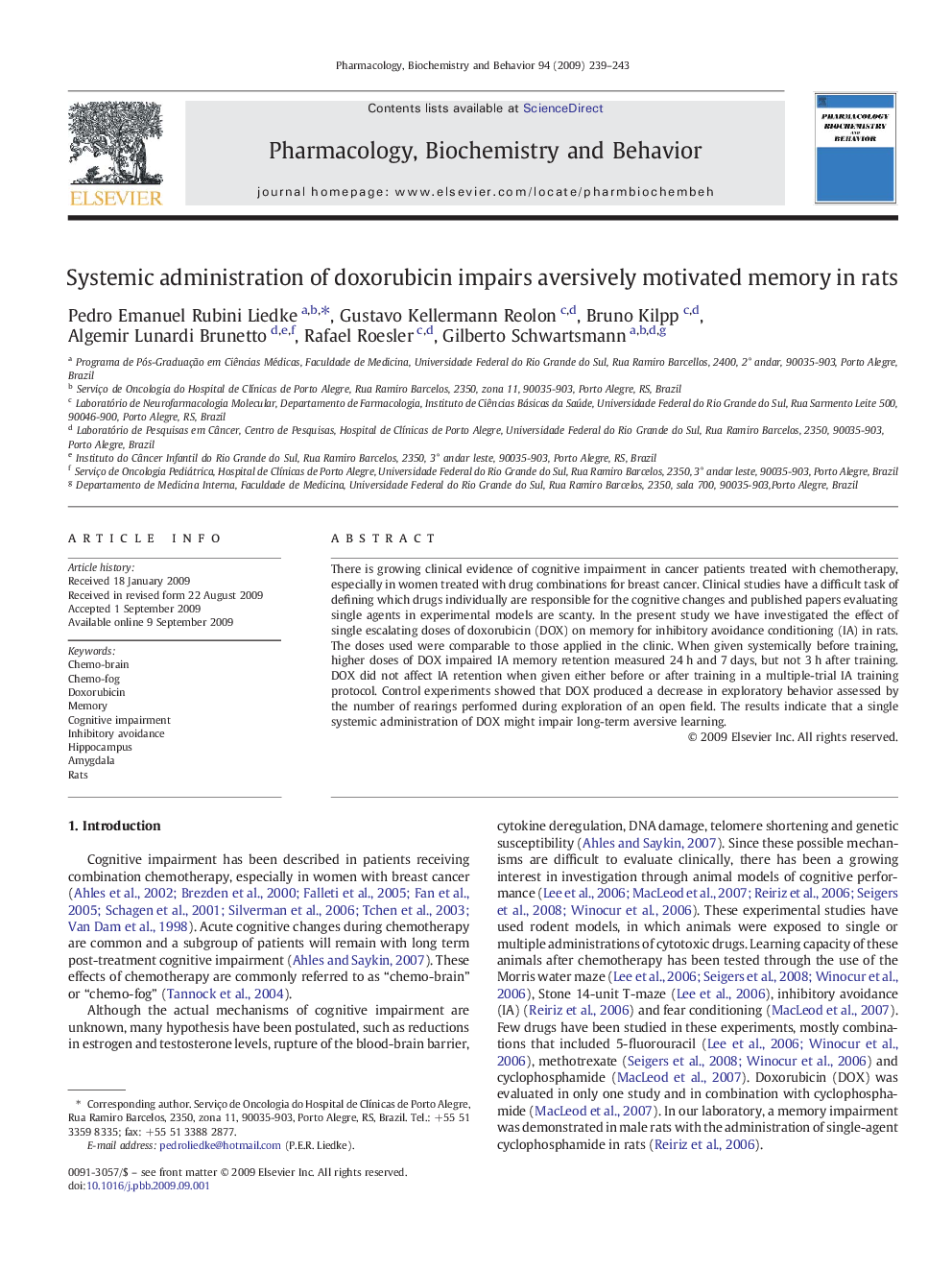| Article ID | Journal | Published Year | Pages | File Type |
|---|---|---|---|---|
| 2013527 | Pharmacology Biochemistry and Behavior | 2009 | 5 Pages |
There is growing clinical evidence of cognitive impairment in cancer patients treated with chemotherapy, especially in women treated with drug combinations for breast cancer. Clinical studies have a difficult task of defining which drugs individually are responsible for the cognitive changes and published papers evaluating single agents in experimental models are scanty. In the present study we have investigated the effect of single escalating doses of doxorubicin (DOX) on memory for inhibitory avoidance conditioning (IA) in rats. The doses used were comparable to those applied in the clinic. When given systemically before training, higher doses of DOX impaired IA memory retention measured 24 h and 7 days, but not 3 h after training. DOX did not affect IA retention when given either before or after training in a multiple-trial IA training protocol. Control experiments showed that DOX produced a decrease in exploratory behavior assessed by the number of rearings performed during exploration of an open field. The results indicate that a single systemic administration of DOX might impair long-term aversive learning.
